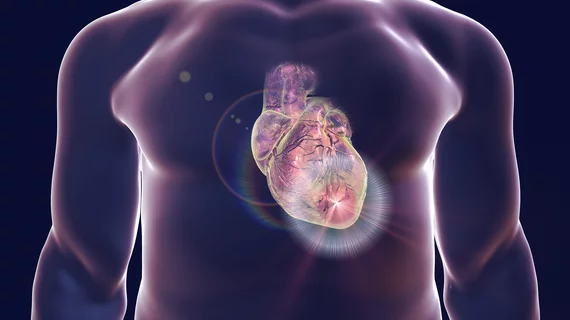A machine learning algorithm trained to read imaging scans was more accurate at predicting heart attacks or death than expertly trained physicians, according to a study presented at the International Conference on Nuclear Cardiology and Cardiac CT (ICNC) in Lisbon, Portugal, on May 12.
The algorithm was trained on data taken in part from coronary computed tomography angiography (CCTA) and PET scans. By continually analyzing 85 variables the algorithm was able to predict heart attack or death with more than 90% accuracy.
"Doctors already collect a lot of information about patients—for example those with chest pain,” lead author Luis Eduardo Juarez-Orozco, MD, PhD, of Turku PET Centre in Finland, said in a release. “We found that machine learning can integrate these data and accurately predict individual risk. This should allow us to personalize treatment and ultimately lead to better outcomes for patients."
Orozco and colleagues retrospectively enrolled 950 patients with chest pain who underwent Turku PET’s usual protocol to identify coronary artery disease. That involved a CCTA scan which produced 58 pieces of data on the presence of coronary plaque, vessel narrowing and calcification. In patient’s whose scans suggested the disease, they underwent PET imaging which produced 17 variables related to blood flow.
An additional 10 variables were taken from medical records—such as sex, age, smoking status and diabetes diagnosis—totaling 85 variables. That data was analyzed by the LogitBoost algorithm, which produced the best structure to predict who had a heart attack or died.
At six-year follow-up, the algorithm that included both PET and CCTA data achieved an area under the curve (AUC) of 0.82 and an accuracy of 90%—topping all other algorithmic combinations. Using only the 10 clinical variables, the algorithm reached an AUC of 0.65. Adding PET data bumped the AUC up to 0.69. Twenty-four patients had heart attacks and 49 died from any cause, according to the study.
"These advances are far beyond what has been done in medicine, where we need to be cautious about how we evaluate risk and outcomes,” Juarez-Orozco said in the same release. “We have the data but we are not using it to its full potential yet."

